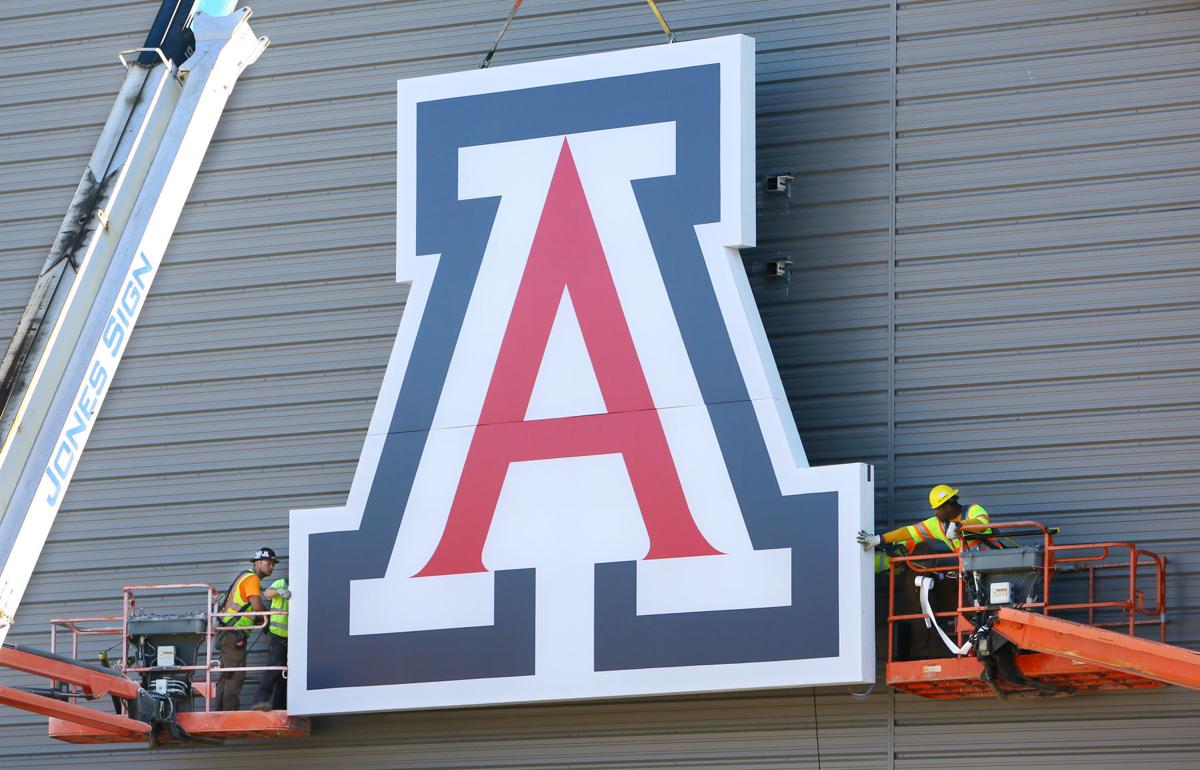The UA launched a hostile workplace investigation into its football equipment manager program following at least one report of an alleged sexual assault involving players.
University attorneys did not say when the investigation took place, only that it followed one of two complaints made by female equipment managers in 2014. The first alleged sexual assault was reported to campus police in August 2014 by employees from another department. It involved a 21-year-old equipment manager and three football players, two of whom were underage of the time of the incidents. During the school’s Title IX investigation into the incident, UA officials interviewed another former manager who said she was sexually assaulted on another occasion.
Information about the hostile workplace investigation came out in court last month as part of an unrelated federal lawsuit against the UA. The lawsuit alleges the school violated UA students’ Title IX rights to an education free from sexual discrimination. The plaintiff is a victim of former UA running back Orlando Bradford, who is serving a five-year prison sentence for domestic violence-related aggravated assault. Bradford was arrested in September 2016, after a UA student told police he had hit and choked her over a two-day period while refusing to let her go home. The day after his arrest, a second woman — the plaintiff in the lawsuit — came forward to say he had also abused her.
Months before Bradford’s arrest, a third woman told school officials that he had also been abusive to her, according to campus police records. Bradford was issued a no-contact order and moved off campus into a house with other players, where significant abuse involving the two other victims occurred, police reports show. The first victim has filed her own federal lawsuit against the UA.
The investigation into the equipment manager program was one of at least three involving the football program during Rich Rodriguez’s tenure as coach.
“The Office of Institutional Equity conducted a thorough review of the football equipment manager program and there were no findings of sex discrimination as a result of that investigation,” UA spokesman Chris Sigurdson told the Star in an email.
Attorneys for the plaintiff in the lawsuit sought records from a UA investigation into a “culture of sexual harassment in the football program,” calling the alleged investigation “a key issue that goes to the heart of our claims,” according to a court transcript obtained by the Star. Attorneys for the UA told the court they had already produced the records, which they said were related to a hostile work environment claim filed by a former student equipment manager. Last month, it was revealed in court that in addition to that investigation, a separate investigation was launched into “significant sexual harassment within the football equipment manager program,” court transcripts say.
In 2014, two UA students who worked as equipment managers separately reported incidents involving nonconsensual sex with football players. In August of that year, police were told that a 21-year-old woman working for the athletic department had sex at least twice with three UA football players while the she was heavily intoxicated. One of the players recorded at least one of the encounters and showed it to other students, the report said.
The woman told police that she lost her job after the recording was released, according to the report.
While investigating the woman’s claim, UA’s Title IX office approached former manager Jacquelyn Hinek, who had quit her job months before, citing pervasive sexual harassment. After speaking to UA investigators, Hinek told Tucson police that she had been sexually assaulted in April 2013 by several men associated with the football team while at an off-campus party. She said the incident was recorded on a cell phone and later shown to other students. (The Star does not typically name victims of sexual violence, but Hinek shared her story with a reporter earlier this year).
Rodriguez was the subject of another hostile workplace investigation in fall of 2017. The UA fired the coach in January 2018, paying a hefty buyout after the investigation did not yield enough to terminate him for cause. Rodriguez’s former assistant, Melissa Wilhelmsen, later filed notices of claim against Rodriguez and the UA, claiming sexual harassment and a hostile work environment. The claims, which are the precursors to lawsuits, were never formally pursued in court.
Attorneys for the UA previously acknowledged in court that between Jan. 1, 2012, and Dec. 31, 2017, the university investigated 27 student-athletes or athletic department staffers for sexual assault, domestic violence or sexual harassment. Eight of them, not counting Bradford, were associated with the football program.
Attorneys for the plaintiff argued in court that the UA knew more about Bradford than it initially let on.
During a Feb. 28 hearing, attorneys for the plaintiff told the court that Erika Barnes, UA’s executive senior associate athletic director, said under oath that she reported Bradford’s abuse to others at the school months before his arrest. Attorneys had previously requested a list from the UA of all individuals who had knowledge of the first woman’s report of abuse, but said the school did not identify “even one individual,” court transcripts show.
The attorneys said that Barnes not only received reports of the abuse of another woman months before Bradford’s arrest, but that she shared the reports with “several high-ranking officials with the university,” court transcripts show.
Attorneys for the UA did not dispute the characterization of Barnes’ testimony, saying only that she did not admit to knowledge of Bradford’s abuse of the plaintiff in the federal lawsuit.
During the past several months, more than a dozen current and former UA employees have been notified that they’ll be deposed in the case. They range from Rodriguez and former athletic director Greg Byrne to softball coach Mike Candrea, former assistant football coaches Charlie Ragle and Calvin Magee, and former football recruiting director Matt Dudek.





